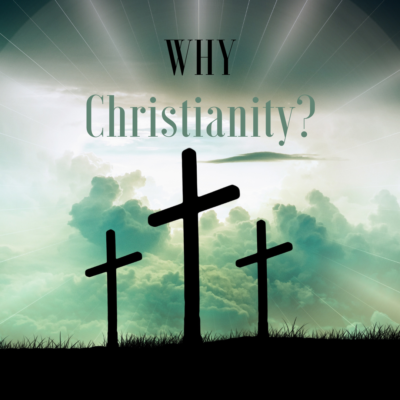Our culture, for all of its faults, is blessed to have a history of Judeo-Christian values. There are common sense parameters we live by because of this rich heritage. They just seem “normal.”
However, when we look at the Jew as they were starting out as a nation, such a heritage was not there. They had no Bible, no Jesus, nor any understanding of God’s plan and purpose. To keep them on track, God had to be very strict. Just as stern punishment might be required to keep a small child out of the street, these people needed harshness in order to follow God’s requirements for life.
He sternly warned them about opening themselves up to demonic forces. At that time, they couldn’t understand about demons, so He didn’t talk about them. However, He warned against any of the practices of witchcraft, sorcery, idolatry, or mediums. Those were practices which would allow the devil to trample freely through their lives. If they would follow His admonitions, they would stay safe even if they didn’t understand all that they were doing.
He also continually warned His people about the necessity of sexual purity. Families were to keep their stucture, honoring the boundaries. Adultery and fornication were prohibited. (Actually, when impurities are allowed in these areas, demons have an entrance also).
Respect for fellow man, regardless of status. Honor of parents. Honor of elders. These were the righteous attitudes prescribed.
One of the attitudes I love is their direction to take care of the poor. When harvesting the crops, the people were to leave some of the crop behind in every field and every orchard. Thos gleanings were left for the poor. After the harvest, any person who needed the food was free to go into the fields and glean the remains. The fact that the poor had to pick it for themselves allowed them to have the self respect of working.
God’s way is always better than ours!
Matthew 27
In verse 46 Jesus cries out in Hebrew, “Eli, Eli, lama sabachthani!” We, of course , know that this means, “My God, My God, why hast Thou forsaken Me?” But when we take that at face value, we lose the message.
Jesus knew that His Father wasn’t forsaking Him. He didn’t feel betrayed at that moment. He was quoting scripture. How do I know? Because He said it in Hebrew.
If you look at Psalm 22, you will understand what I mean.The very first line is “My God, My God, why hast Thou forsaken Me?” Jesus was saying, “This scripture is being fulfilled in Me.” The scripture speaks of the torture of Jesus during the crucifixion. “The bulls surround Him.” “They gape like raging lions.” “They pierce my hands and feet.” “I can count all my bones” “I am poured out like water.”
Read the whole Psalm and you will feel better about it. At the end, Jesus is declaring praise to the assembly. The last two verses are especially telling. They speak of us – the ones who in the future will belong to the Lord.
A posterity shall serve Him. It will be recounted of the Lord to the next generation. They will come and declare His righteousness to a people who will be born, that he has done this.
What has He done? He has paid the ultimate sacrifice so that we can live for Him forever! We are the posterity.
All through the life of Jesus, you can see how He uses the Word to bring clarity, to war against the devil, even to remind Himself. In this verse, He’s done it once again.
When we “walk as Jesus walked,” we too will use scripture in those ways.





